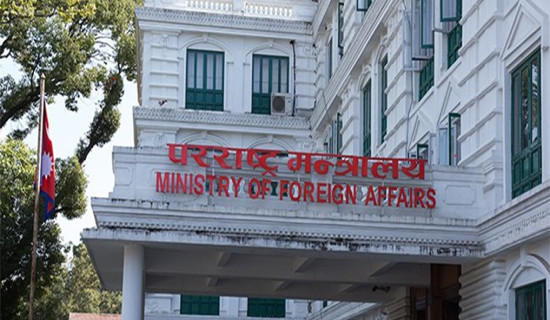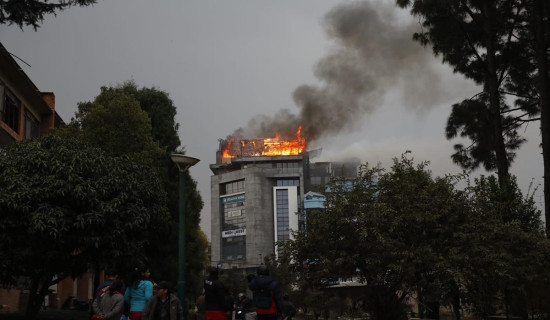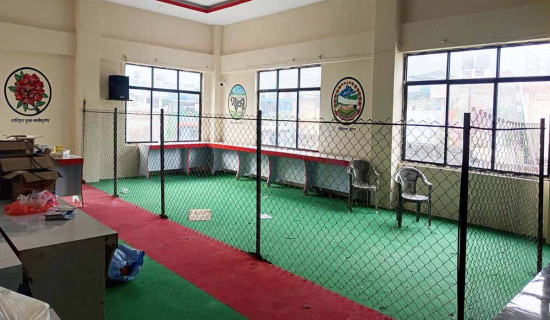- Wednesday, 4 March 2026
Merit Of Transparent VC Selection Process
The debates on the university education reforms have of late gained momentum as Tribhuvan University (TU) is set to get a new leadership. Academics and concerned stakeholders have stated that appointment of the Vice-Chancellor (VC) based on the political connection has led to the deterioration of the quality of TU's education and credibility. It is widely agreed that the practice of recruiting the key officials through flawed process is unlikely to help end the structural anomalies, plaguing the country's oldest varsity for decades.
A growing number students make a bee line at the Tribhuvan International Airport airports to fly abroad for pursuing their higher education. This scene occurring on a daily basis gives us shudder whether the country will soon be emptied of young talent. Poor management of university is blamed for the rising brain drain which undoubtedly merits urgent attention. Amidst mounting pressure for revamping the reform of universities, Prime Minister Pushpa Kamal Dahal Prachanda, also Chancellor of TU, has taken a commendable step to appoint the VC on the basis of meritocracy and in a transparent manner. The post is laying vacant after former VC Dr Dharma Kanta Baskota completed his four-year term in office.
Positive feedback
A recommendation committee under Education Minister Ashok Rai has picked three individuals for the post. Out of shortlisted 14 candidates, Chitra Bahadur Budhathoki, Tankanath Dhamala and Keshar Jung Baral have been recommended as per the selection and recommendation procedures. Altogether 42 persons had applied for the top TU position. They had made presentation on their vision and action plan for running the university. The government has also called for applications for the post of VC at Purbanchal University (PU). This process of appointing the VC has elicited positive feedback from the public.
Some stakeholders remain sceptical whether the selection process will be fair and transparent. The performance of the some shortlisted candidates, who had worked in the TU in their various capacities in the past, have come under scrutiny. Nonetheless, this initiative will set a new precedent to appoint the VC in the future as it will promote the culture of meritocracy and professional aptitude.
Meanwhile, it is not realistic to expect a drastic reform from a single person. It is only with a collective commitment and action that the varsity education can be overhauled, transforming it into a centre of excellence on a par with the world's famous universities and academic institutions. Discrepancies that are piling up for many years can't be overcome overnight. Youth leader Manushi Yami has echoed this line of thought, stating that the TU has many structural problems that can’t be resolved instantly even by putting the most qualified person at the helm of leadership.
Indeed, the success of reform efforts hinges not only on the determination of leadership but also on their ability to resist external pressures and implement visionary plans. A pertinent example is demonstrated by Mayor of Kathmandu Metropolitan City Balendra Shah, whose transformative leadership has brought about positive changes in the capital city. He has gritted teeth to effectively manage city waste, to clear the hassle-creating street vendors to give much-needed eased mobility to the pedestrians, to give new facelift to sidewalks, among other notable works.
Central to the reform agenda is the need to refocus universities on research, ensure timely examinations, and address the critical issue of producing graduates equipped with the skills demanded by the job market. Lacking emphasis on research activities, Nepali universities have largely failed to link the academia with the industry. Furthermore, delays in examination schedules undermine the credibility of academic programmes and disrupt students' educational journeys.
Moreover, the failure to produce a workforce aligned with market demands exacerbates the unemployment crisis and hampers the nation's economic growth. Therefore, it is imperative for the new leadership of TU and other universities to demonstrate the willpower to effect positive changes.
Another pressing concern is the increasing shortage of students pursuing higher education, who are increasingly drawn to foreign universities. This trend not only reflects disillusionment with the current state of higher education but also highlights the urgency of revitalising the university system to attract and retain students. Here, only the universities cannot hold the students within the country if the government has no plan to engage them in production sectors.
Active engagement
In conclusion, the government's initiative to reform university leadership selection processes is laudable. It is only a first step towards addressing the multifaceted challenges facing Nepali universities. True transformation will require concerted efforts from all stakeholders, including transparent and accountable leadership, proactive policymaking, and active engagement with the broader community.
By prioritising research, conducting examinations in time, and aligning educational outcomes with market needs, Nepali universities can reclaim their position as engines of innovation and drivers of national development. It is time for decisive action and collaborative efforts to usher Nepali varsities in a new era of excellence.
(Dhakal is a journalist at TRN.)











-original-thumb.jpg)
-original-thumb.jpg)



